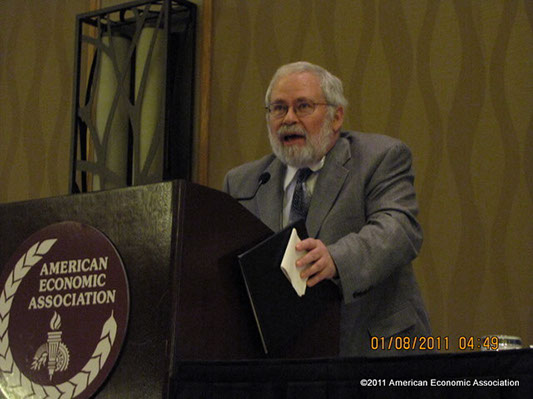David Kreps is a professor at the Graduate School of Business at Stanford University. His book on microeconomics is taught in Iran’s post-graduate economics schools. A 94th issue of Tejarat-e Farda (Tomorrow’s Trade), out on July 12, 2014, featured an interview with the American economist in which he had fielded 10 questions posed by the weekly magazine’s Ehsan Barin, who admits that the short answers Kreps has provided to his questions are as informative as spending hours listening to lectures on economics. We have chosen the last two questions and answers which are less technical in nature and thus widely understandable.
There are pressure groups both in Iran and in the US trying to prevent President Rouhani and President Obama from reestablishing diplomatic relations between the two countries. As an expert, what do you think is the best strategy for the two presidents?
I’m not an expert on the specifics, and I certainly would not want to offer the presidents any concrete advice. Based on my own expertise, I would offer two insights from theory blended with my observations: A. Actions nearly always speak louder than words. B. In particular, one builds credibility by being credible.
reputation-management is tricky business: X’s reputation with Y is a product of the long-term interactions between X and Y, but it also depends on how X behaved and is behaving with Z and W. – David Kreps
These days, diplomats from Iran and P5+1 (five permanent members of the UN Security Council plus Germany) are trying to work out an agreement on Iran’s nuclear program. Are these talks a repeated game in which the reputation of the countries involved has an important role to play?
The situation is not a repeated game in the formal sense, but to change your phrasing a bit, I think it is obvious that the credibility of the parties to carry out their portions of any agreement is an essential element in reaching an agreement, and reputation is very often a key to obtaining credibility. That said, reputation-management is tricky business: X’s reputation with Y is a product of the long-term interactions between X and Y, but it also depends on how X behaved and is behaving with Z and W. Y, in trying to assess what X will do in the future, looks closely at what X did in the past with Z and W and, at the same time, thinks hard about what X may be called upon to do in the future in re Z and W.
David Marc “Dave” Kreps (born 1950, New York) is a game theorist and economist and professor at the Graduate School of Business at Stanford University. He is known for his analysis of dynamic choice models and non-cooperative game theory, particularly the idea of sequential equilibrium, which he developed with Stanford Business School colleague Robert B. Wilson. – Wikipedia
